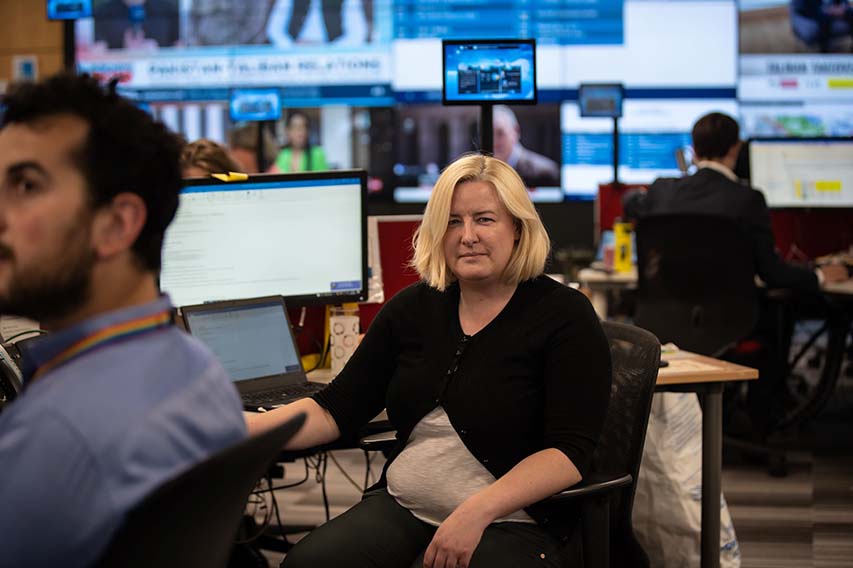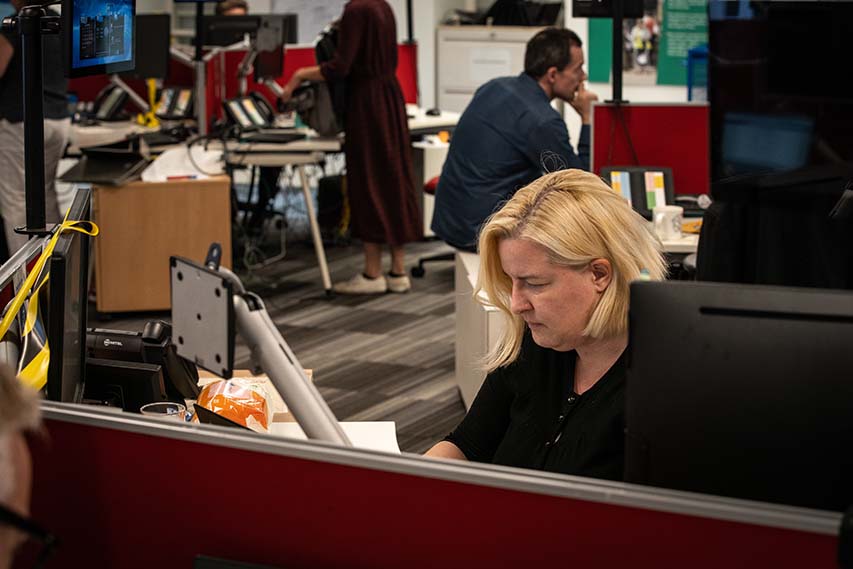NI Diplomat Sheena Lavery speaks about the last few days of the evacuation in Kabul
The UK Government evacuated over 15,000 people from Afghanistan, including around 2,200 children, from 14 August until the final British military flight departed on Saturday 28 August in the evening.
A Northern Ireland diplomat was immersed in the chaos of the last few days as the Taliban tightened its grip on control over Kabul Airport, and the country.

Sheena Lavery was part of the team that faced a race against time to get as many people out of Kabul as it could.
Having worked in the UK Government crisis centre and being tasked with helping over 15,000 Brits and Afghans to flee the Taliban, Sheena Lavery shares a glimpse into what life was like being at the heart of the emergency operation.
Working from a control hub in the basement of the Foreign, Commonwealth and Development Office, Sheena worked 24/7 to save lives.
The UK Government evacuated over 15,000 people, including around 2,200 children, from August 14 until the final British military flight departed on Saturday August 28 in the evening.
Belfast-born Sheena (46) said: “Working on this crisis came with a lot of responsibility because peoples’ lives were literally on the line.
“It has been stressful and there’s a lot of pressure, but saving peoples’ lives is rewarding and that kept us going. We’ve got these people out under exceptionally difficult circumstances.
“Even though the UK’s flights out have now stopped, our work does not stop there and my colleagues will continue working to find any British or eligible Afghans a safe route out.”
“Welcome to the Crisis Management Department,” reads the sign above the door into where the British evacuation of Afghanistan was masterminded.
“On one wall is a detailed map of Kabul airport and the surrounding area – ground zero in the race against time – with zones marked out in pink and green highlighter.
“On another are a row of 24-hour clocks showing the time in cities across the world: London; Kabul; Washington and Baghdad.

“In between are clusters of desks, six or eight people on each. The room packed with people working the phones to quite literally save lives in Afghanistan.
“It is here that all wings of the UK Government were brought together to orchestrate the response to the crisis: Foreign Office, Home Office and Ministry of Defence.
“In one side room, off the main open-planned centre, people continue to make calls to those hoping to escape Kabul.
“Around 110 people can fit in the centre at one time. They have been working in shifts that run 24/7 – around 40 people are usually found on the 10pm to 6am overnight stint.
“But that is a fraction of the team worldwide. More than 1,000 Foreign Office staff have been working on the Afghanistan withdrawal, not to mention border officials and military personnel in other departments.
“A team in Dubai has been processing those who land from Afghanistan. Likewise, teams in Birmingham and Heathrow have been receiving those who eventually make it to the UK.
“A message stuck to a landline phone on one crisis centre desk reads simply: “Keep calm and call the CMD.”
Sheena gave her insight into the demands of working in the crisis bunker.
Having previously served for two-years in Kabul, the task was emotionally draining for Sheena because she is worried about the safety of the many Afghans she worked with.
Sheena explained: “It’s been distressing for me. I worked closely with a lot of people in Kabul and there are difficult times ahead.
“I know some of the people that we are helping to get out, so there’s been a personal satisfaction as well when we succeed.
“There have been moments where we’ve got people onto a flight and we’ve done a little happy dance. It is great when you have a tangible result like that, and you have got people out of real danger.”
Sheena said: “I loved Afghanistan and met some extraordinary people working in really challenging circumstances. I can picture the places in Kabul where we were telling people to meet.
“We worked on lots of projects there, particularly with girls’ education and sports, and you just do not know what is going to happen now.”
Sheena, who joined the FCDO in 2003 has worked on numerous crisis responses and says that the Afghanistan situation is one of the most challenging.
She added: “I’ve done a whole range of crises – hurricanes, terrorist attacks, earthquakes, you name it. Covid blew all our previous crises out of the water in terms of scope, but this has been at the upper end of the scale for sure.
“I’m not sure there’s such a thing as a typical day when you are doing crisis. The pace is non-stop.






















